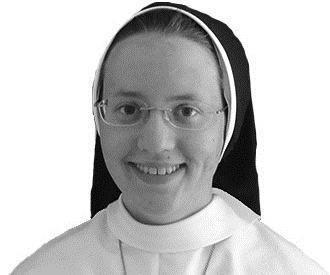One of the best homilies I have ever heard offered new insight into doubting Thomas’s confession of faith. The late Fr. Paul Mankowski — brilliant exegete, faithful Jesuit, kind man, and loyal priest of Jesus Christ — delivered this homily on Divine Mercy Sunday, 2017, in the small chapel of our Sisters’ convent in Chicago.
Fr. Mankowski asked: why was Thomas the only Apostle missing when these companions, inseparable for the last three years, gathered in the Upper Room that Sunday after their Lord’s death? Various explanations are possible; Father based his upon a connection between the singularity of Thomas’s absence and another singular characteristic of his: he was a twin — Thomas Didymus.
Twins, Father suggested, can experience loss differently, and perhaps more deeply, than the rest of us. When Jesus died, Thomas’s grief might have driven him to dissociate himself entirely from those places and persons he associated with Jesus. Again, his unique relationship to loss would have prompted his insistence that he could not place his trust in Christ again without physically touching the wounds in His risen body.
Fr. Mankowski was leading up to his main point: in His Mercy, Christ gives each of us exactly what we need. To be healed, Thomas needed to touch Christ’s wounds. Thomas also needed to know that Christ knew that he needed that. And so Christ offered Thomas something He did not offer to any of the other Apostles: He opened His hands, bared His side, and bid Thomas touch.
“Blessed are those who believe without seeing,” Jesus added (Jn 20:29), but indeed blessed, too, was Thomas because, seeing, he believed with all his heart: “My Lord and my God,” he exclaimed. The walls he had built around himself, to ward off further loss, crumbled. He perceived that Jesus is truly God. He perceived that, although suffering and loss will continue in this life, ultimately Jesus is the Lord of life and has prepared for us a heaven where there is only union and fulfillment.
Again and again in the Gospels, Jesus demonstrates that He knows each individual down to the soul’s depths and wishes to heal him or her in precisely the way that he or she requires. “He himself knew what was in [the heart of] man” (Jn 2:25). He knows Zacchaeus the tax collector — why he is perched in the tree and the extent of his dishonesty — and offers him new life. He knows the woman at the well — exactly how many husbands — and perseveres through her cold sarcasm to offer her new life. He leads a deaf man away from the crowd to heal him, so that the crowd’s chaotic noise will not overwhelm his newfound hearing.
In this season of mercy, following the Sunday of Divine Mercy and approaching the outpouring of the Spirit at Pentecost, let us trust in God’s knowledge and love and open our hearts to Him in confession. As one of our Sisters so beautifully put it, He wants our sins so that He can take them away.
Sr. Maria Veritas Marks is a member of the Ann Arbor-based Dominican Sisters of Mary, Mother of the Eucharist.









